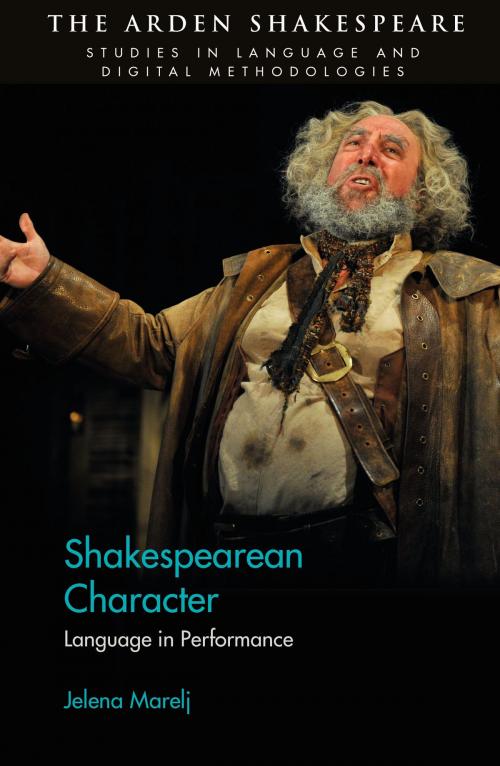Shakespearean Character
Language in Performance
Fiction & Literature, Literary Theory & Criticism, British| Author: | Jelena Marelj, Professor Jonathan Hope, Lynne Magnusson, Michael Witmore | ISBN: | 9781350061392 |
| Publisher: | Bloomsbury Publishing | Publication: | January 24, 2019 |
| Imprint: | The Arden Shakespeare | Language: | English |
| Author: | Jelena Marelj, Professor Jonathan Hope, Lynne Magnusson, Michael Witmore |
| ISBN: | 9781350061392 |
| Publisher: | Bloomsbury Publishing |
| Publication: | January 24, 2019 |
| Imprint: | The Arden Shakespeare |
| Language: | English |
Why do we continue to experience many of Shakespeare's dramatic characters as real people with personal histories, individual personalities, and psychological depth? What is it that makes Falstaff seem to jump off the page, and what gives Hamlet his complexity? Shakespearean Character: Language in Performance examines how the extraordinary lifelikeness of some of Shakespeare's most enigmatic and self-conscious characters is produced through language.
Using theories drawn from linguistic pragmatics, this book claims that our impression of characters as real people is an effect arising from characters' pragmatic use of language in combination with the historical and textual meanings that Shakespeare conveys to his audience by dramatic and meta-dramatic means. Challenging the notion of interiority attributed to Shakespeare's characters by many contemporary critics, theatre professionals, and audiences, the book demonstrates that dramatic characters possess anteriority which gives us the impression that they exist outside of- and prior to- the play-texts as real people.
Jelena Marelj's study examines five linguistically self-conscious characters drawn from the genres of history, tragedy and comedy, which continue to be subjects of extensive critical debate: Falstaff, Cleopatra, Henry V, Katherine from The Taming of the Shrew, and Hamlet. She shows that by inferring Shakespeare's intentions through his characters' verbal exchanges and the discourses of the play, the audience becomes emotionally involved with or repulsed by characters and it is this emotional response that makes these characters strikingly memorable and intimately human. Shakespearean Character will equip readers for further work on the genealogy of Shakespearean character, including minor characters, stock characters, and allegorical characters.
Why do we continue to experience many of Shakespeare's dramatic characters as real people with personal histories, individual personalities, and psychological depth? What is it that makes Falstaff seem to jump off the page, and what gives Hamlet his complexity? Shakespearean Character: Language in Performance examines how the extraordinary lifelikeness of some of Shakespeare's most enigmatic and self-conscious characters is produced through language.
Using theories drawn from linguistic pragmatics, this book claims that our impression of characters as real people is an effect arising from characters' pragmatic use of language in combination with the historical and textual meanings that Shakespeare conveys to his audience by dramatic and meta-dramatic means. Challenging the notion of interiority attributed to Shakespeare's characters by many contemporary critics, theatre professionals, and audiences, the book demonstrates that dramatic characters possess anteriority which gives us the impression that they exist outside of- and prior to- the play-texts as real people.
Jelena Marelj's study examines five linguistically self-conscious characters drawn from the genres of history, tragedy and comedy, which continue to be subjects of extensive critical debate: Falstaff, Cleopatra, Henry V, Katherine from The Taming of the Shrew, and Hamlet. She shows that by inferring Shakespeare's intentions through his characters' verbal exchanges and the discourses of the play, the audience becomes emotionally involved with or repulsed by characters and it is this emotional response that makes these characters strikingly memorable and intimately human. Shakespearean Character will equip readers for further work on the genealogy of Shakespearean character, including minor characters, stock characters, and allegorical characters.















